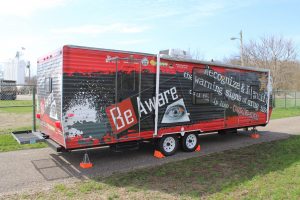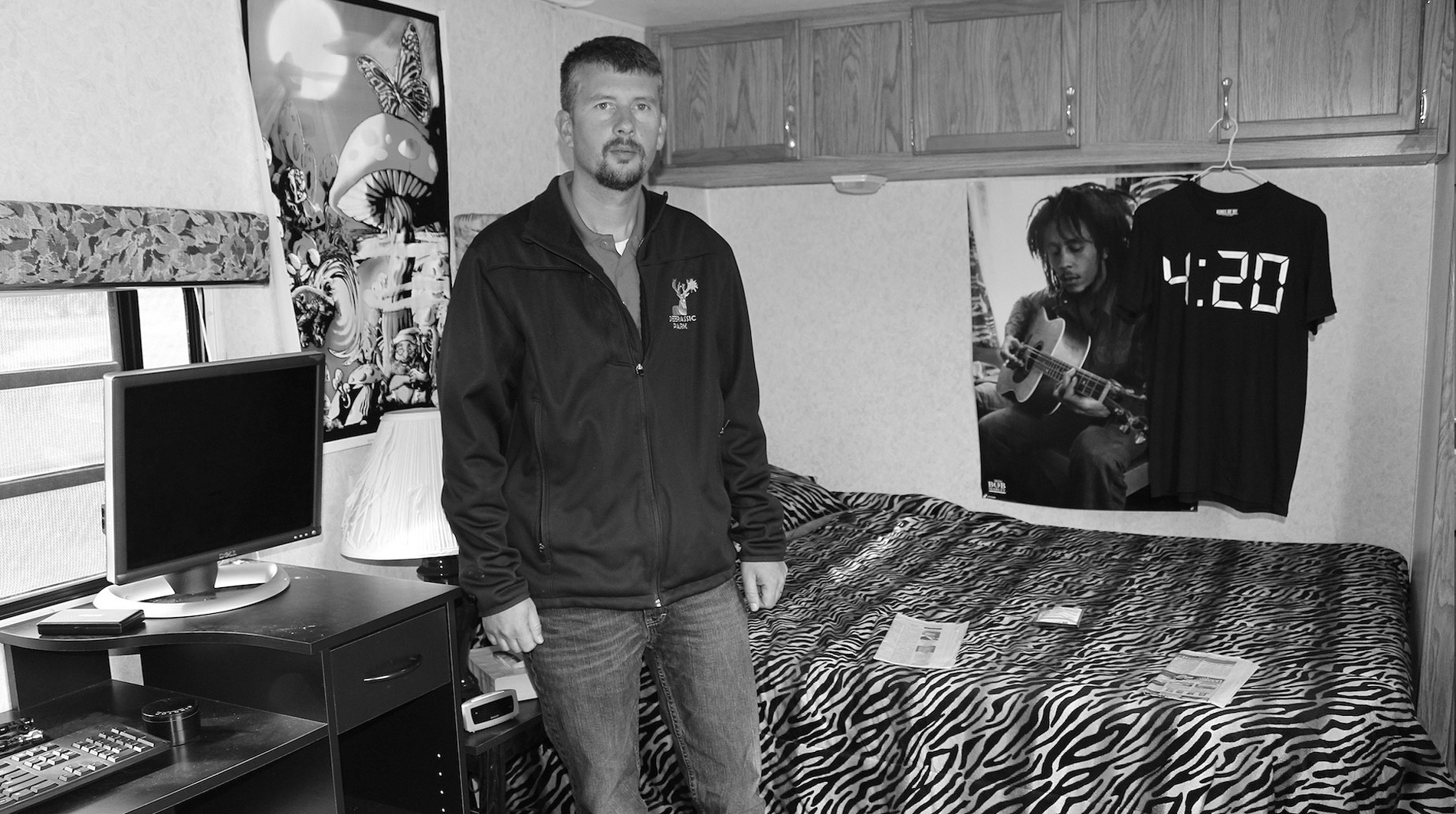While the opioid epidemic is costing lives, it’s also costing communities and taxpayers big bucks to fight. The Centers for Disease Control and Prevention has found that prescription opiate abuse alone costs $78.5 billion a year in crime, lost work productivity and health care. From private businesses to county governments, on down to the individual, no one is untouched.
Cambridge Police Lt. David Peoples has been with the department for 21 years and over the past few years, he said, the drug epidemic has reshaped just about everything they do. In July, the police force rolled out a program that requires each patrol officer to carry naloxone, the opioid-overdose antidote. Today, almost all first responders in the county, including those outside of Cambridge, carry naloxone.
The antidote was provided to officers through local and state health departments as part of something called Project DAWN — (Deaths Avoided with Naloxone). In the first two months, naloxone has been used four times to save lives, Peoples said. Someday, he added, the antidote might even be used to save an officer’s life if there’s an accidental exposure.
He said the drug issue has not only stressed law enforcement, but also the EMTs and fire and rescue personnel, who often have to respond to the same calls. “You get a couple overdoses and that’s resources that could be needed somewhere else,” he said.
Rocky Hill, director of public safety for Cambridge, said it’s hard to put a dollar amount on what drugs have cost the community, but he said it’s substantial.
Working extra
The police department conducts drug-related arrests and drug raids throughout the year, and sometimes incurs overtime costs because of the hours involved. The department has an assigned drug officer, whose main responsibility is drug enforcement, but all officers deal with the issue. And many of the people arrested for drugs become repeat offenders — adding to the case load — but Hill said the department has to keep fighting, or the drug users will take over.
“To say we can’t do it because of money just gives the drug users and drug dealers more run of the city, and that’s not what we’re going to do,” he said.
Overbooked
The jail, built more than 20 years ago, is designed to hold 66 inmates. On any given day, it’s holding close to 90, at a cost of about $60 per inmate a day. Most of the crime is drug-related, in one way or another, Peoples said.
“We see an uptick in thefts — people are stealing stuff left and right from local department stores, or out of cars — trying to sell this stuff off just to get money and get their next fix,” he said.
In addition to his law enforcement job, Peoples is also president of the Cambridge City School District Board of Education. He said the school has not seen an uptick in drug issues, but it’s something that everyone in the community is on the lookout for, including the school’s police-assigned resources officer.
“It has definitely made everybody, from staff to administrators to even students, just more aware of what’s going on,” Peoples said, adding that the staff has been trained on what to look for.
The right start
Peoples has four daughters, ages 14 to 20, and said he’s tried early and often to teach them to stay away from drugs, to resist peer pressure and to call their parents if there is an issue. As a police officer-dad, he also shares stories of what happens if they make the wrong choices.
“They got the message,” he said.
Finding solutions
But getting the message across to everyone isn’t easy. Guernsey County Commissioner Dave Wilson said people need to understand the problem affects everyone — not just one community or economic class. “The drug activity is taking place everywhere,” he said. “It’s crossing socio-economic classes. Everybody, to some extent, is at risk.”
The one positive, he said, is that local agencies and private businesses continue to work together on solutions. “The good news is we have unprecedented cooperation,” he said.
The City of Cambridge recently purchased the former Huntington Bank building in downtown Cambridge, with plans to do some renovations and relocate the city’s police department. That will free up some space at the justice center, which will be renovated to house nonviolent offenders. The move is not entirely because of the drugs, but the drug issue has exacerbated the need for more space.
The community is also working to educate all age groups about drugs, including adults and senior citizens. At the Guernsey County Sheriff’s Office, Lt. Jason Mackie is one of several law officers and community members behind the Be Aware Program — a mobile trailer unit that is used to teach the community about how to spot drug use in the home.

Previously used as a FEMA trailer, the interior has been converted to look like the typical living quarters of someone who might be using drugs. It’s a way of being proactive, and showing family and friends signs of drug use in the home.
“We have a lot of adults who are not aware of what drugs look like or drug paraphernalia,” Mackie said. “We’ve also found that if there can be early intervention, there’s a lot better chance to reverse that, to get people away from drugs.”
Determined to succeed
According to Wilson, the county is doing about all that it can. “I can’t imagine our community doing more than it is, both in government-funded as well as in private entities,” Wilson said. “We’ve got a lot of people engaged in this — it’s just such a gigantic issue that it’s just so hard.”
Karen Wiggins, director of Alcohol and Drug Services of Guernsey County, said the community has shown support for fighting drugs by passing levies that fund the local mental health board and drug recovery programs. And, although treatment is costly for taxpayers, it’s also costly to not provide treatment, leading to more unemployment and issues with crime. Wiggins is trying to get people back on track, so they can hold jobs and be contributing members of society.
“It’s amazing to watch them become what they were supposed to be, before addiction changed things,” she said.
Costs aside, Wiggins said it really boils down to saving lives.“They’re somebody’s daughter, they’re somebody’s mother, somebody’s son,” she said. “Sometimes it takes a bit, but, by golly, if we can save them, that’s what we do.”
(Reporter Chris Kick can be reached at 330-403-9477, or by email at ckick@farmanddairy.com.)


















